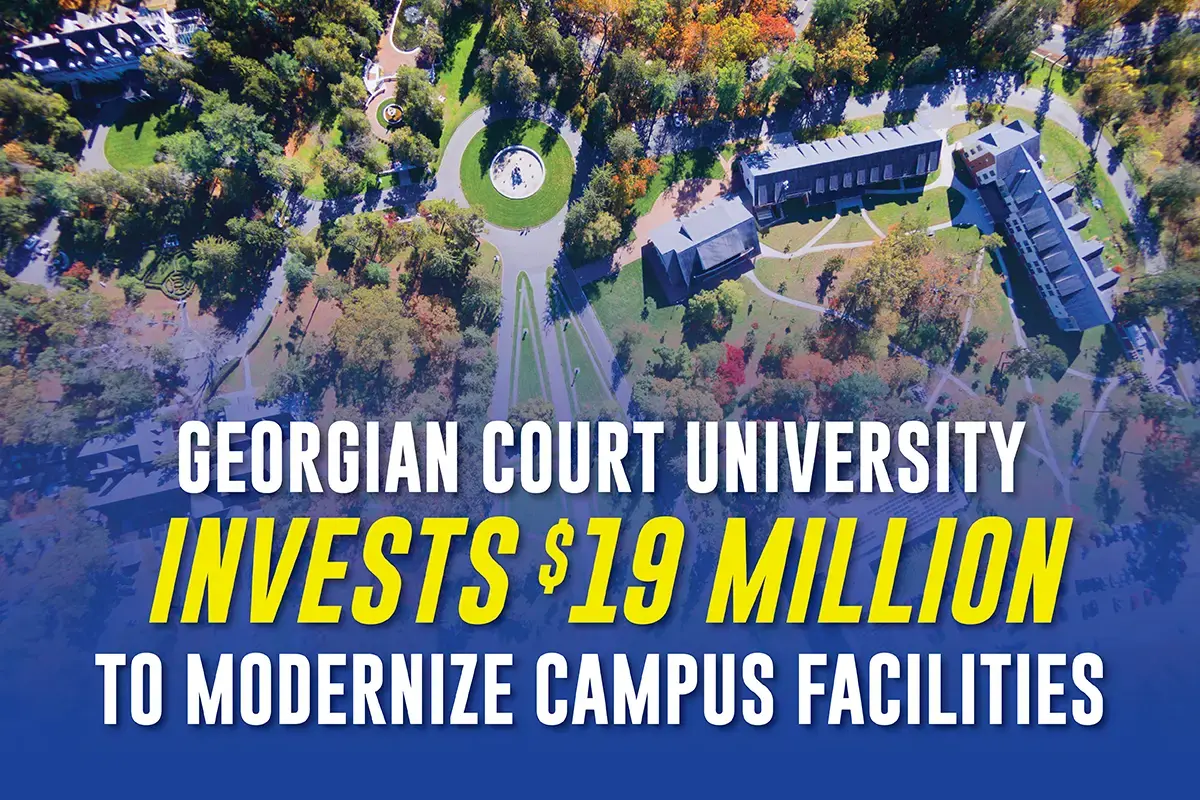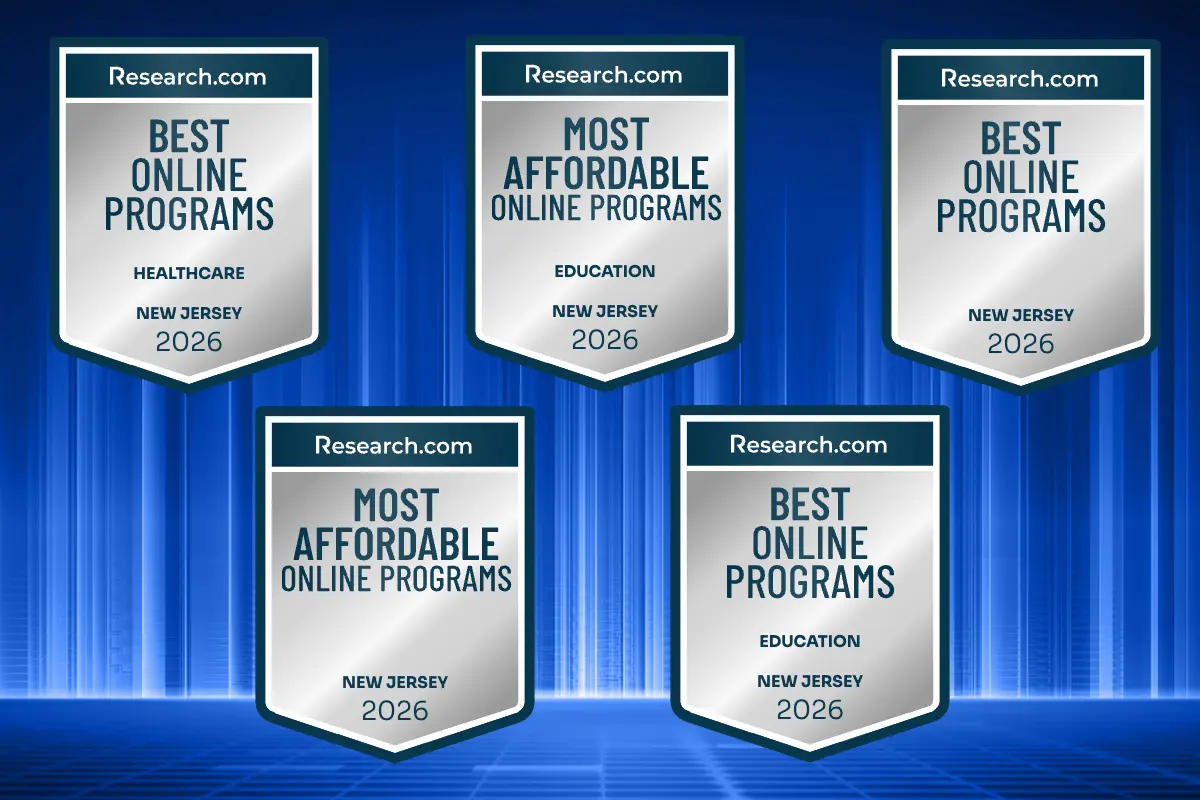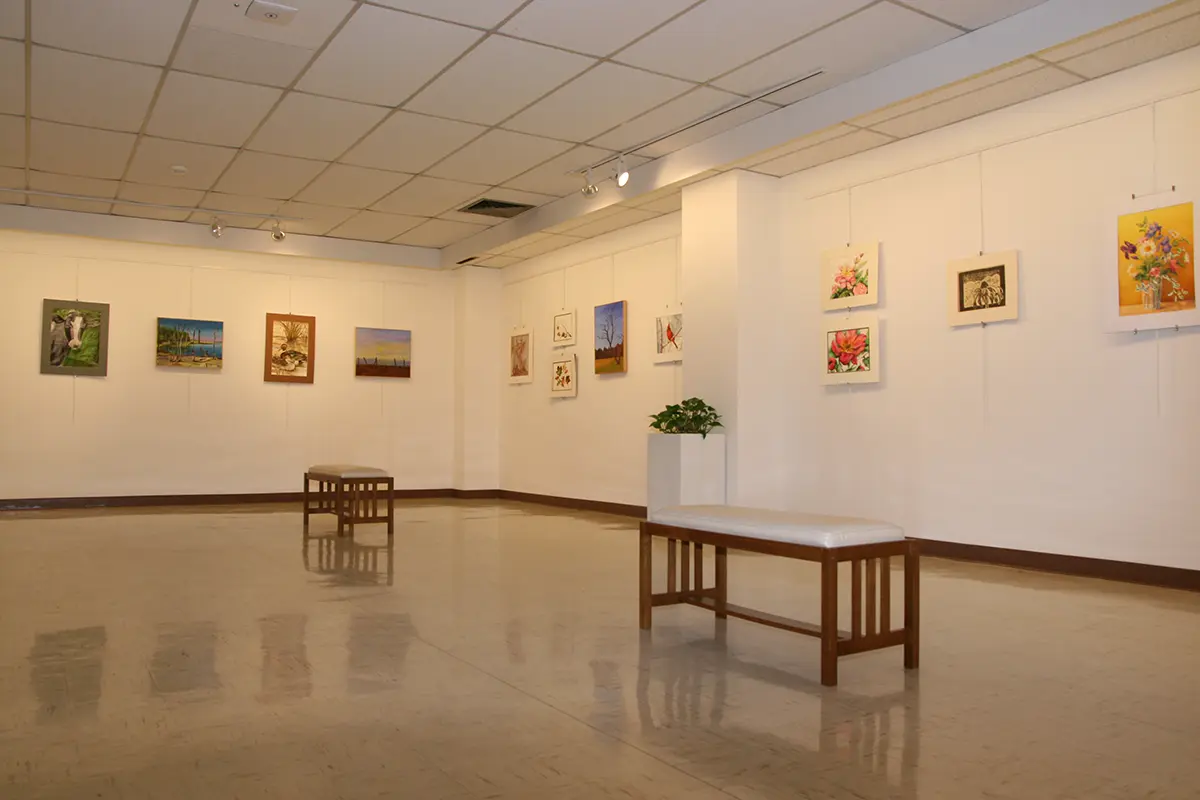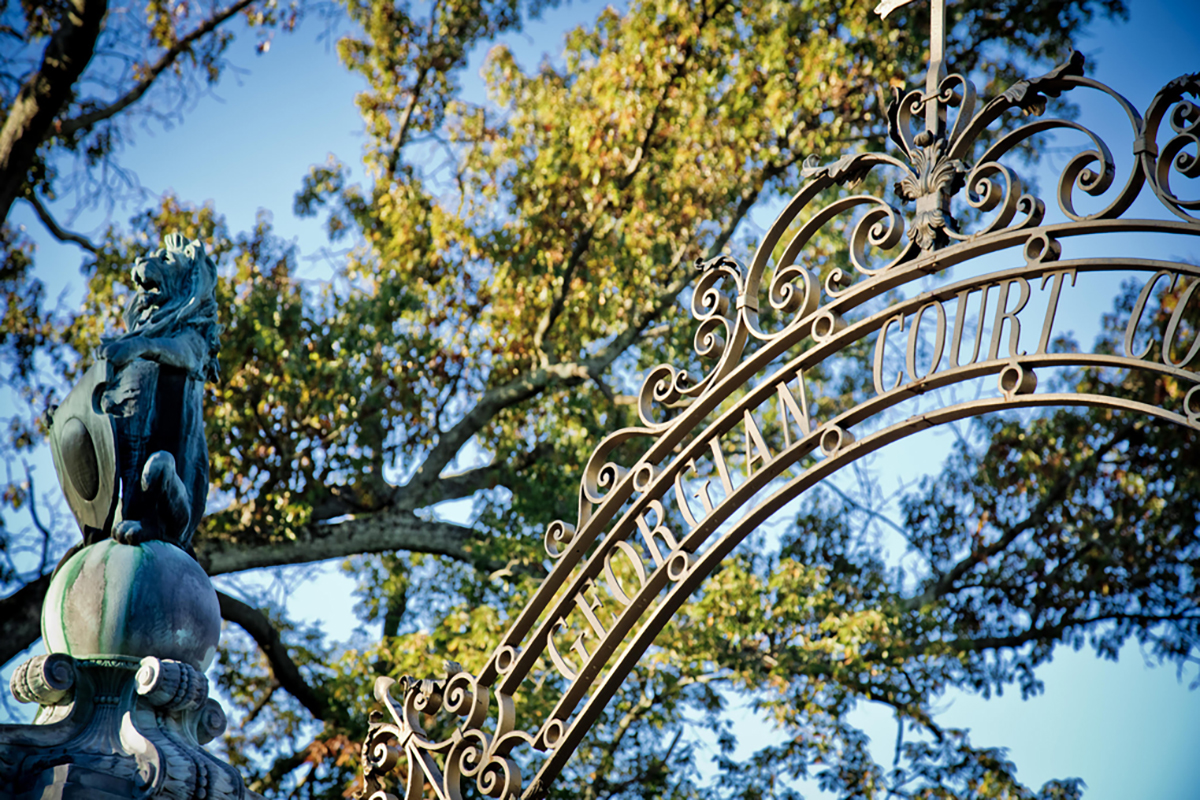More than 100 “blessing” purses and bags were filled for clients served by three nonprofits this academic year, thanks to collection drives led by the Social Work Club at Georgian Court University’s Lakewood and Cumberland campuses, and made possible by donations from a generous university community. Overflowing with trial-sized personal care basics such as shampoo, toothbrushes, soap, and feminine hygiene items, plus snacks and cold-weather hats, gloves, and blankets, these bags and purses also offer something intangible to the people who receive them—dignity.

Among the recipients: homeless people living in Kensington, Pennsylvania, who were helped in partnership with Operation in My Backyard; and people who’ve experienced domestic violence and are served through two organizations, the New Jersey Center for Family Services’ Services Empowering Rights of Victims (SERV) program and Providence House of Catholic Charities in Ocean County.
“Many of the women fleeing abusive relationships who seek safety at Providence House arrive with just the clothes on their backs. While the hygiene items inside the blessing purses are truly useful and necessary, the fact that they were donated by people in the community who care is uplifting. Donations like these give victims of domestic violence hope and reassure them that they are not alone,” said Rachel Johnston, Providence House Domestic Violence Services community affairs manager.
It’s because of such “mercy work,” the essence of social work that both ministers to people in need and raises awareness among the rest of us, that GCU joins in celebrating Social Work Month this March. Social workers—and students learning core tenets of the profession—boldly take on today’s most complex societal challenges: addiction, homelessness, hunger, family issues, violence, poverty, mental illness, social justice, health inequities, and countless others.
The work is not only life-changing; it can be life-saving. At an information table on the Lakewood campus, GCU social work students started the conversation around mental health, specifically, suicide prevention.
“We provided free handbooks, bracelets, and information about available resources on campus,” said Amanda Ricci ’23, a social work major and Social Work Club president from Barnegat, New Jersey. The topics of depression and suicide are often overlooked on college campuses, she believes. “We had an opportunity to openly discuss these issues and dive deeper into the importance of student mental health on our campus. This event not only allowed us to inform students and faculty on ways to approach young adults in crisis, but also to destigmatize discussions around mental health and suicide in educational settings.”
Much of social work is field or community based, so fittingly, in December, GCU’s Social Work Club Cumberland members went to Kensington to deliver the blessing bags. “This was done to show love and compassion to the most vulnerable of populations in the spirit of the holidays,” said Kelsey Hammer ’22, a social work major and Social Work Club–Cumberland Liaison from Elmer, New Jersey. “Operation in My Backyard believes in empowering people who use drugs by educating them on how to do so safely, and also distributes food and seasonal necessities to people experiencing homelessness. Getting to work with them was a life-changing and mind-expanding experience that will remain dear to my heart throughout my career.”
A Growing Program to Meet a Growing Need
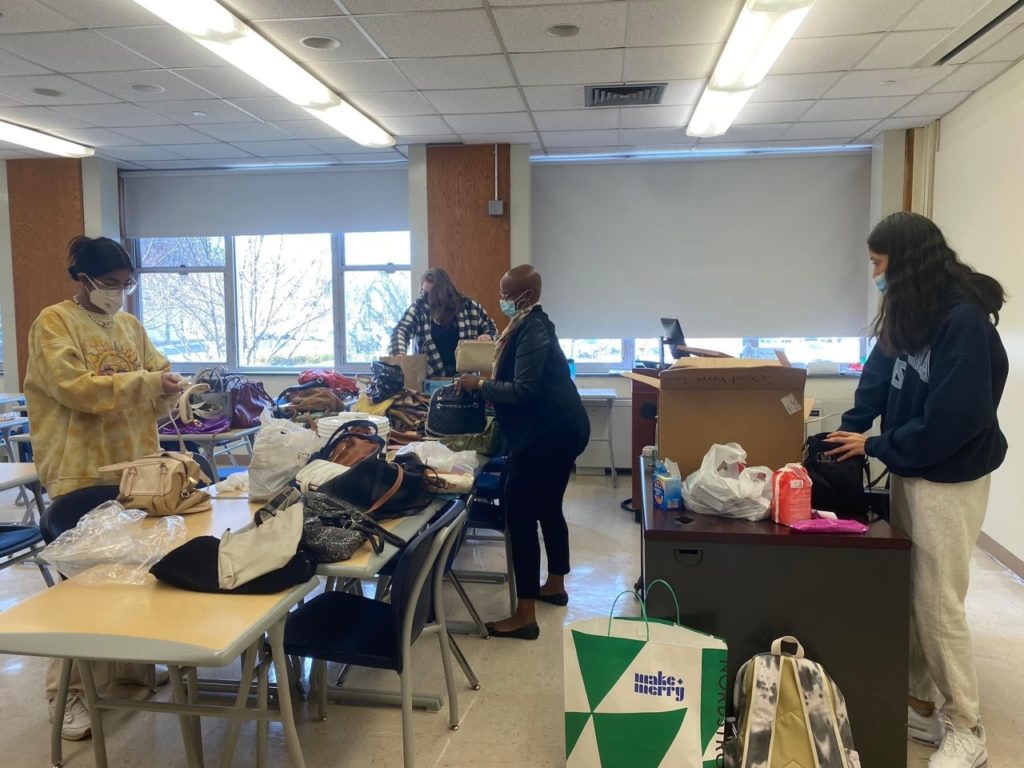
If these and other GCU social work activities give students a flavor for the profession, the university’s B.S.W. in Social Work program’s holistic curriculum gives undergraduates the foundation and preparation to be change agents. Two semesters of Spanish, or another foreign language, are among the liberal arts requirements, with mandatory program courses grounded in human behavior, social justice, research, policy, and practicums, plus electives such as Family Systems and the Human–Animal Bond.
Currently, about 90 undergraduate social work majors study at GCU’s Lakewood and Cumberland campuses. While the pandemic affected all college classes, said Megan Callahan Sherman, LCSW, Ph.D., assistant professor, B.S.W. program director, and chair of the Department of Social Work, “virtual learning made role playing and deconstruction (a reflective practice critical to social work) more challenging. And yet, our social work students thrived in the classroom and enjoyed even greater access to faculty.”
The pandemic also helped remove some of the stigma from mental health care, a positive for clinical social workers who might help people with depression, anxiety, or other issues. “People realize more than ever before that it’s really OK to seek out help, and the telehealth sessions that became available out of necessity during COVID-19 have made mental health services more accessible and accepted,” said Dr. Sherman.
Even before the pandemic, occupational forecasters predicted a growing demand for social workers. The Occupational Outlook Handbook reports the profession is expected to grow 13% between 2019 and 2029, “much faster than average,” with 90,700 positions expected to be added during that timeframe.
While B.S.W. programs such as Georgian Court’s prepare students for generalist positions, a Master of Social Work (M.S.W.) degree provides specialized knowledge, values, skills, and practice behaviors. “Students who pursue an M.S.W. degree, as about 70% of our GCU B.S.W. graduates do, often become policy, administration, or clinical professionals and leaders within the profession,” said Dr. Sherman.
Georgian Court is preparing to launch its own M.S.W. program, having undergone several rigorous stages of development and approval within the university system, and is now awaiting approval by the state of New Jersey. GCU’s M.S.W. program would be the state’s sixth and will be a hybrid (virtual and in-person learning) with two specializations: direct practice and community partnership. Perhaps most important, the GCU M.S.W. program relates closely to the university’s mission and Mercy core values. “The link between recognizing the need for social justice with the action required to remedy it lies at the heart of the university’s desire to add an M.S.W. program,” said Dr. Sherman.
So, Why Social Work?
The need for social workers is clear, but with the profession’s emotional toll, long and sometimes thankless hours, and salaries that don’t nearly match the work’s value, it takes special people to enter the field. People like Amanda, Kelsey, and GCU’s other social work majors and B.S.W. graduates.
As Amanda explains, the profession appeals to her commitment to social justice and advocacy. And there’s more. “I have been called to social work to address societal injustices and speak on behalf of individuals whose voices are not heard,” she said. “I am driven by a passion for systemic change and a desire to implement well-served social interventions. As a social work student at GCU, I am grateful for an education that allows me to strive for my goal to one day lead community-based initiatives.”
For Kelsey, there’s that “big picture” purpose for entering the field—reducing the burdens of another person is “one of the most magical things we can do as human beings”—and a personal one. During her first semester at Georgian Court, Kelsey’s brother passed away from an opioid overdose—a tragedy that changed her entire perspective on life. “It is special to me today, that I have the opportunity to help individuals facing the same illness, because I did not have the privilege of helping my brother,” she said. “I am so thankful to have found this awe-inspiring profession to pursue.”
Story contributed by freelance writer Sheila Noonan.


